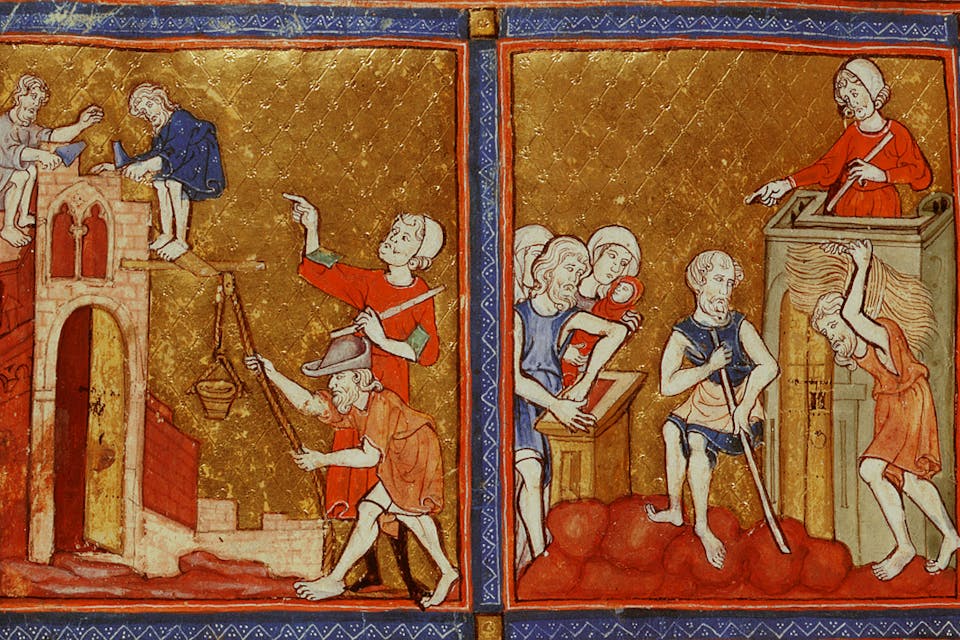
January 31, 2019
The Bible’s New Attitude toward Slavery
The Torah doesn't outright end slavery, which was ubiquitous in the ancient world, but it does take the first steps toward ameliorating and transforming it.
In the first part of the book of Exodus, after centuries of slavery in Egypt, God rescues the Israelites amid miracles and wonders. Their freedom, however, is not an end in itself but a precondition of their true national calling: the worship of God. Thus Moses first leads the Israelites not to the Promised Land but to Mount Sinai, where God reveals Himself and gives them the Ten Commandments. In this week’s Torah reading of Mishpatim (Exodus 21-24), which follows immediately thereafter, the Israelites are given the outline of an entire legal system, complete with instructions on tort law, financial regulations, the prohibition on witchcraft, and the agricultural holidays—a first taste of the legislation that will take up much of the remainder of the Pentateuch.
It is surprising, then, that Mishpatim, which inaugurates the legislative portion of the book of liberation, begins by speaking of slavery: “When you acquire a Hebrew slave, he shall serve six years; in the seventh year he shall go free, without payment.” This topic consumes the first 27 verses of the parashah, which in itself suggests just how far the Israelites have come: from being slaves themselves in a foreign land to being prospective owners of slaves in their own land, governed by their own laws.
At a glance, it might even seem that the oppressed have become, or are about to become, the oppressors. Yet a closer look shows that the placement of this passage is neither haphazard nor contradictory but instead forms a crucial link between the narrative and the legal segments of Exodus—beginning with the very first verse, which mentions not just slavery but also emancipation. For the Torah goes on to elaborate: after seven years, a slave purchased as an individual is to be set free alone. If he was acquired along with his family, he is to leave with them. If, as a slave, he married and had children with another of his master’s slaves—presumably a non-Israelite woman who does not benefit from the same seven-year clause—he is required to leave his family behind.